I urge you to channel your anger, comrade, to make us grow. Bring your ideas. And if the class doesn't support them, convince them. Give us your energy.
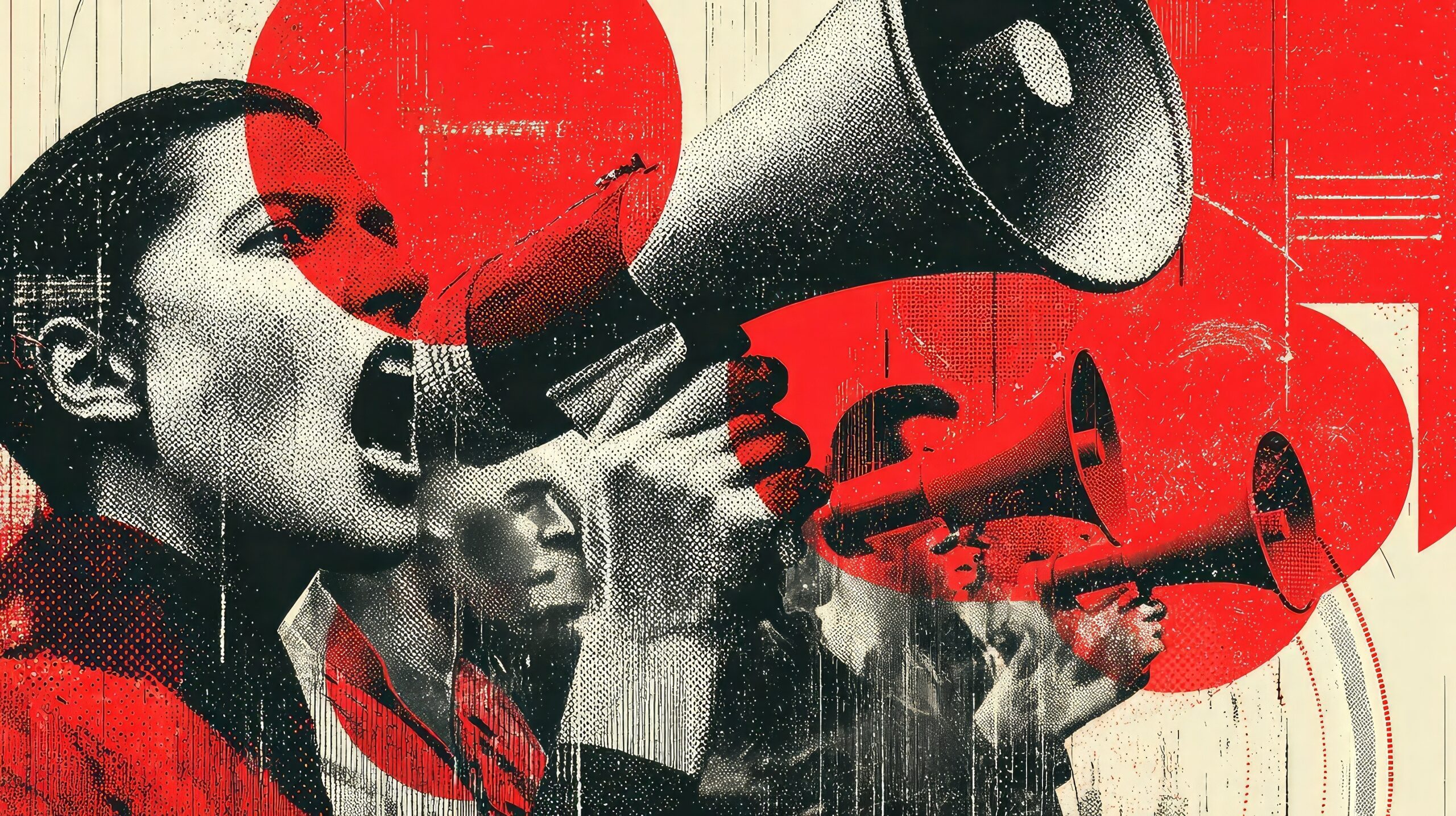
The article below, although talking about the specific case of a journalist, echoes way beyond the local realities of a Journalists’ Union in Portugal. In this clash of arguments lie many questions that trade unionists need to ask themselves.
Fumaça (fumaca.pt) is an independent, non-profit investigative Portuguese journalism podcast, which started in 2016. Its focus is on scrutinising systems of oppression. They see themselves as independent, dissident and anti-authoritarian, because it is the journalists who, without administration, management and resisting hierarchies, horizontally decide the publication’s destiny, using consensus as the decision-making process. They stand for alternatives to traditional journalistic structures in financing, editorial and labour practices, and organisational models. They aspire to radical editorial and operational transparency and do not believe in the existence of neutral journalism. Instead, they clearly acknowledge their subjectivities and conflicts of interest.
On the 16th of June 2025, Ricardo Esteves Ribeiro, one of the founding members, authored the weekly newsletter titled “Union of journalists, crutch of the capital” (“Sindicato de Jornalistas, muleta do capital”, in its original Portuguese). In it he describes the long disillusionment process which led him to quit his membership of the Portuguese Journalists’ Union (which he calls the Union of Journalists). He tells how he joined full of willingness to fight for better material conditions for himself and the others, and how, over time, he grew disillusioned with the Union and, after seven years, quit.
He lays out a long list, but there is a heavy focus on how the Union failed to support his action as a journalist and afterwards in providing proper legal support, be it in addressing multiple instances of police brutality against journalists or lawsuits by targets of reporting. Upon further reflection, Ricardo also tells how he doesn’t think that Unions are the structures to challenge the boss-worker dichotomy. The way he sees it, it is a problem with trade unionism because in order for trade unions to fulfil their role of representing workers, then employers must recognise Unions as valid representatives, which means that Unions in turn must recognise the employers’ authority and behave within the bounds of proper negotiation.
It is in the context of answering the grievances of Ricardo that Nuno Viegas replies one week later. His reply is the piece you’ll be able to read here.
The Union is What You Make of It
It never ceases to amaze me how capitalists are able to profit even from the principles of anti-capitalists. To the benefit of employers, workers leave unions for a myriad of reasons. As a follow-up to my comrade Ricardo Esteves Ribeiro’s newsletter from last week, I’d like to take a look at one of these paths towards the destruction of workers’ movements: the othering of the union, its transformation into an organism external to the class of workers it represents, but with whom it maintains a merely bureaucratic relationship.
Effectively, unions turn into service providers through a market-based approach to collective action, in which workers who do not participate in steering the union interact with the organisation in a transactional model to demand answers to individual needs: asking for legal support, communicating about their outrages or organising colloquia about their interests.
Some unions just put themselves in such a position. They hold on to rigid hierarchies and remain under the leadership of the same people for years on end. They entangle themselves in pyrrhic struggles from which they draw feeble conquests. They promote membership by giving access to discounts, announcing that quotas are tax deductible, or proclaiming themselves an insurer: “pay every month so that one day you can use our lawyers”. Thus, seeing their labour conditions worsen each year, workers lose hope in the union’s ability to achieve even minor improvements, let alone fundamentally reshape the societal model which condemns them to a lifetime of obeying bosses and begging administrators for scant pay raises. Same way we’d stop going to a grocery store selling rotten fruit, if the union does not solve our personal difficulties, we abandon the collective project.

But there’s a perspective issue when you criticise unions solely for these personal disappointments, even when they are serious failures. In his first paragraph, Ricardo Esteves Ribeiro states that when he joined the Journalists’ Union (SinJor) in 2018, he had “the will to fight for better material conditions” for the class, understanding that “the bare minimum would be to strengthen the union”. But the example he puts forward on how he wanted to “help those who already spend their energy fighting for more and better rights for those who work alongside them” is to provide “another trade union membership and the few monthly euros it entails”.
I would argue that on this matter, unions are akin to gyms. The membership fee alone does not produce results. Change requires effort. The 1% fee of our salaries is a donation, not militancy. It obviously makes a difference. The dues 1,700 journalists paid last year allowed SinJor to provide free legal services to 200 associates, to protect them from unlawful dismissals, get contracts after years as false contractors, and fight illegitimate lawsuits that try to condition their journalistic work. But this is not what a union is.
I agree with my comrade’s concerns. Do the lawyers fail? Undoubtedly. Does the union take a stand when necessary? Not always. Does it invite the wrong people to speak on its stage? Sometimes. And why would a union that, for a year, ignores a member expect him to remain a member?
Understandably, journalists feel disappointed by a union that has struggled to achieve more than slowing the decline. In each newsroom, there are legitimate reasons to be annoyed or disappointed, be it for the past six months or the last twenty years. The collective agreement for radio staff, which is being renegotiated, hasn’t guaranteed a salary increase since 2006. There is no collective bargaining for private television stations. Photography sections are dying. The compulsory traineeship to access the mandatory professional accreditation serves as a coercive mechanism to access cheap labour.
Trade union action, within a profound crisis in media sustainability, has been demonstrably insufficient. This statement requires no more proof than the wages we’re paid and the work we submit ourselves to publishing.
It is not the criticism that sets us apart. It’s me thinking that what you read last Thursday is a good starting point for a discussion with other members in a general assembly, where flaws are laid bare, solutions are suggested, and consensus to improve the organisation we are part of is sought. And I worry that frustrated apathy will continue to prevail among journalists. Through annoyed indifference, we allow disappointments to accumulate, assuming that the structures that fail us are unchangeable. So we give up influencing them and start framing participation as collaborationism.
There will be irreformable structures, which maintain such a distance from their militancy and such a degree of bureaucratisation that democratic intervention is next to impossible. Unions where being a member is no more than being a statistic. However, without showing that we’ve hit the bottom of that hierarchical well, the call to lower one’s arms, even if for clear moral reasons, is nothing more than a favour, a crutch… offered to capital.

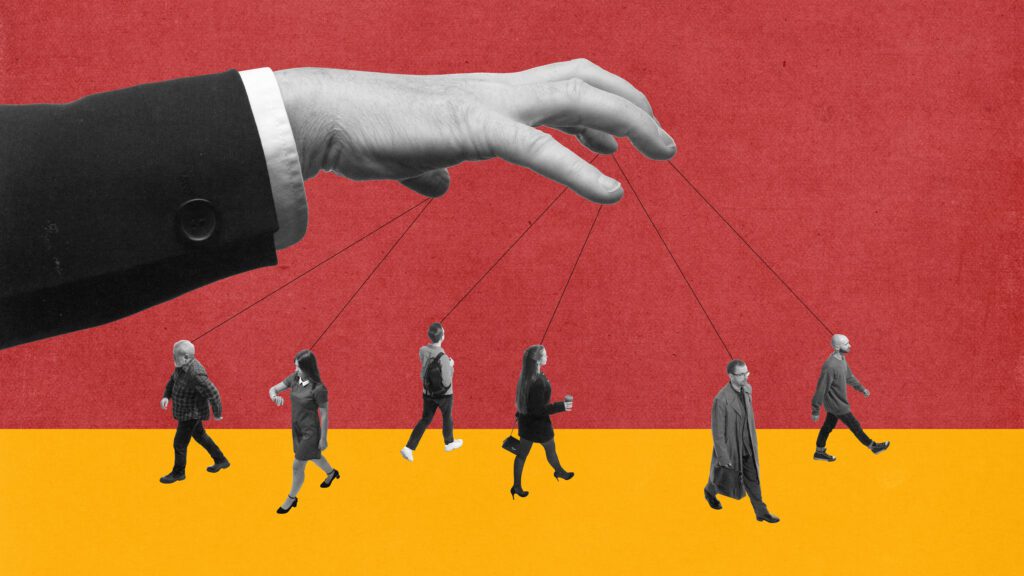
A criticism never made has no impact
Not only I do not think that SinJor has crystallised hopelessly, but it seems clear to me that the criticisms you read here should remind us that unions exist to be taken over by workers. They’re political arenas. It’s up to each of us to create collective mobilisation mechanisms that serve us. If we believe that a worthy trade union must spring from the autonomous organisation of each newsroom, assembly to assembly, it is our duty to build it. If we expect more ambition and more radical ways of struggle from the existing trade unions, we have an obligation to influence them. If a union does not serve its militancy, it must be re-founded. SinJor, I’ve come to realise, is permeable to its militancy, with some effort.
In 2021, I too was threatened by Strong Charon with a lawsuit, and considered leaving due to union inaction. I had my own list of disappointments: insufficient proposals for financing journalism, lack of ambition to fight the oppressive organisation of newsrooms, frail monitoring of repeated violations of the Code of Ethics, and lack of solidarity with other workers’ movements. And I found it strange that the union – in what I’d figured would have been a desirable practice – never contacted me to learn about my working conditions and explain how I could get involved, even when I was in a major newsroom in 2019 [moved].
I asked the union for little, gave less and received nothing. That didn’t change what I think since 2021, though, when, quoting my comrade, we concluded: “the best way to fight this unacceptable conformism and reprehensible lack of solidarity is to remain unionised, to vote in its internal elections and to use my membership to criticise the organisation’s actions. ‘I will not leave, just so I’m able to make that criticism most effectively.’”
Let’s look at a critique in the first line of last week’s newsletter. There, Ricardo refers to SinJor, “Sindicato dos Jornalistas” as “Sindicato de Jornalistas” (avoiding the gendered form, as in Portuguese “dos” is a male determiner and “de” has been used as gender neutral). Those who disagree with the name of an organisation they are part of can take one of two approaches. To start, they can put energy into getting a consensus.
First, you’d find out if this has already been discussed, either by sending an email or calling someone from the steering committee, or going to the headquarters, which, for years, was less than a kilometre from Fumaça’s newsroom. Then, talk to other associates to find out if other people agree. If not, figure out how to start the discussion and build a favourable critical mass. This might lead to voting on a motion at the next class congress, perhaps attached to an intervention on gender in newsrooms. At some point, we have to try to vote it in the union’s general assembly. If it fails, insist.
Another option: as Ricardo Esteves Ribeiro did, a Trumpian unilateral name change. Bothered by the name of the union, we write it differently for a day, keeping reality unchanged and the name gendered. Maybe we don’t try to intervene because we assume we’ll fail. But I hold failure at changing things more dearly than success at varnishing them.
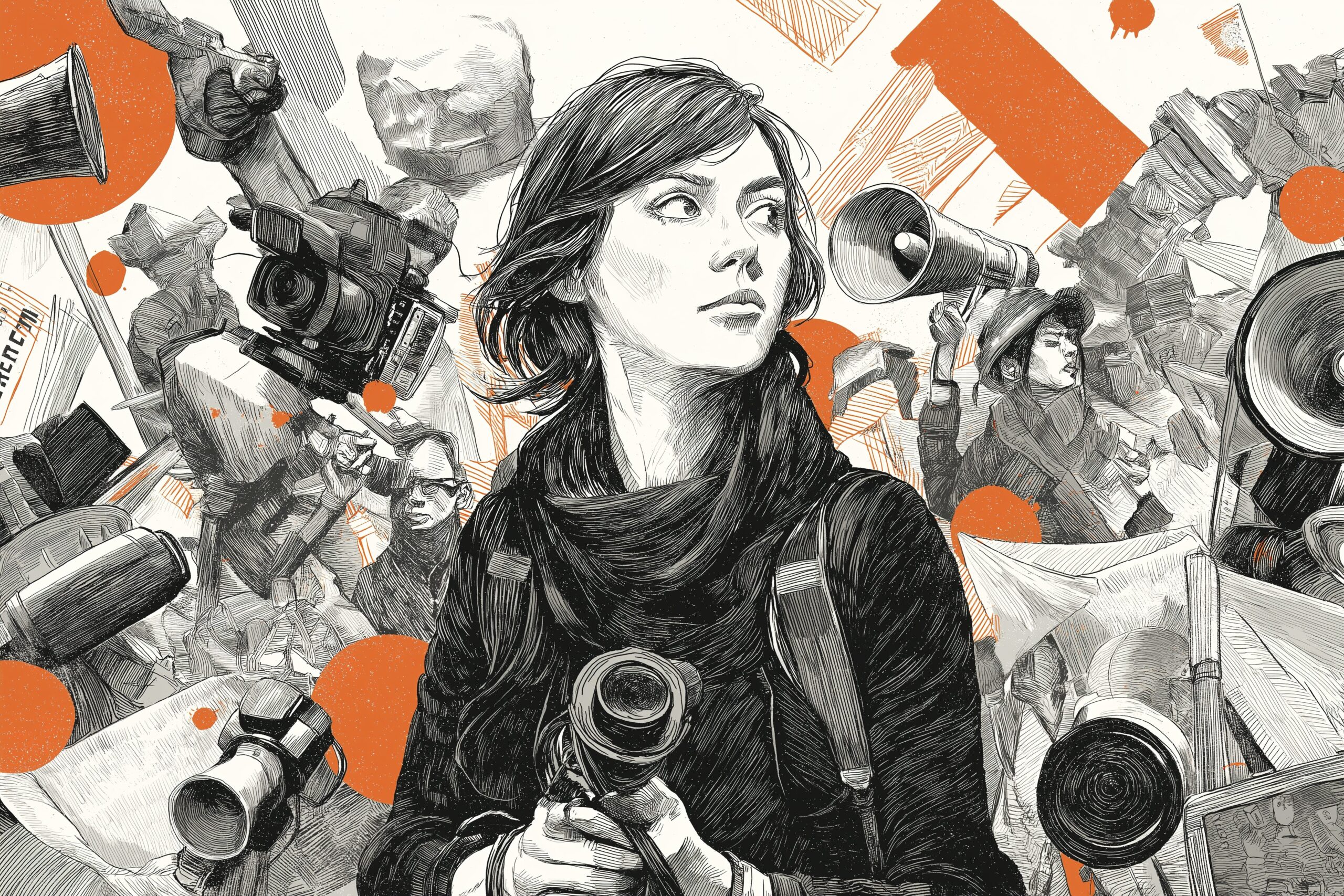
I, for one, failed trying to change the name of our last congress. Back in July of 2022, I went to an extraordinary general assembly at 9.30 p.m. on a Friday to discuss the preparations for the 5th “Congresso dos Jornalistas Portugueses”. I suggested focusing on financial sustainability and how newsrooms are organised, allowing students to intervene in debates, and changing the name so it’d be the 5th “Congresso de Jornalistas de Portugal”. I didn’t ask for a vote. Even though I believed I’d convinced much of the room, when the event started in January 2024, the name remained.
For the actual congress, my interventions focused on transparency and ethics, rather than on nomenclature. Under pressure from another Ricardo (Cabral Fernandes, at the time at the publication Setenta e Quatro), I also proposed a motion calling for the first general strike of journalists since 1982. We gathered dozens of subscribers, and rephrased the text to merge it with two similar proposals – from SinJor itself, and from Ana Luísa Rodrigues, working at RTP. As suggested by the previous president of the union, Sofia Branco, this joint text determined that I join a strike committee with the signatories of the motions, the union leadership, and the president of that congress, Pedro Coelho, a journalist at SIC.
It was left up to us to draft the demands and coordinate the strike preparation and mobilisation actions. I will not detail the very short build up to the strike of March 14, 2024, during which, next to people much more generous and knowledgeable than me, I spent weeks participating in assemblies at newsrooms I’d never entered, producing propaganda, open letters and opinion columns, thinking about communication strategies, distributing leaflets on the subway until I was expelled by Carris’ employees, and organizing demonstrations.
I’m using this whole tangent to reveal that, in the aftermath of the aforementioned strike, the current president of our union, Luís Filipe Simões, invited me to join a list for the upcoming election. And, precisely because of the annoyances above, I felt it would be disloyal to refuse. Therefore, since May last year, I have been one of 13 people in the union’s national leadership, a post I’d like to dismantle. But while it’s how we operate, in recent months I’ve devoted part of my time to promoting a statutory revision, which, besides other major amendments, will include proposing to the general assembly changing the name of this almost century-old organisation to, precisely, Sindicato de Jornalistas. It is a change that will be approved, if not now, later. Like other much larger ones.
Being distant is not the same as being airtight
I support the criticism of institutional lethargy. But to say that the mountain does not move without ever trying to push it is a feeble argument. And my comrade, who has stimulating pushes to give, only voted in our internal elections once in eight years, never ran with an alternative list, never appeared in a general assembly, missed the last congress, never spoke to successive union steering committees about their reform or their mistake of inviting politicians and media directors to speak, never volunteered hours to strengthen the existing trade union practice, nor to constructively question it beyond speeches and opinion columns. All of this despite working in a privileged newsroom, with freedom to do so. We control our working hours. We are not afraid of retaliation from bosses. How much more difficult is it in other newsrooms to gain the momentum to intervene in the union?
Giving nothing and asking nothing of the SinJor is something more common than I’d like. We are an organisation that lacks funding and has limited militancy. For hundreds of newsrooms, with more than 5,000 journalists, we have 31 acting trade union delegates. In addition to these delegates and the 76 people who make up the governing bodies, there is only a handful of journalists supporting the union daily. It is much less than what it would take to form a living union in each newsroom. We lack journalists who contribute to improving trade union practice. We suffer from constructed disinterest, legitimate disappointment, and fear (we have newsrooms where we’re not able to convene plenaries).
Much of the fault lies with us, those who’ve given time without being able to maintain a sufficient daily connection to newsrooms, motivate the consistent mobilisation of working people, properly integrate those who join, bring those who stay into decision-making, and regularly communicate work done. But there is also a general disengagement of the class, which once recognised they were exercising an eminently political profession, dedicating itself to a civic mission, but whose members have been transformed into factory workers of news production, gears of an uncritical, depoliticised system of publishing information.
Just look at how few publications have elected newsroom councils. Look at how few publications criticise each other’s coverage. At how few journalists disagree with each other publicly.

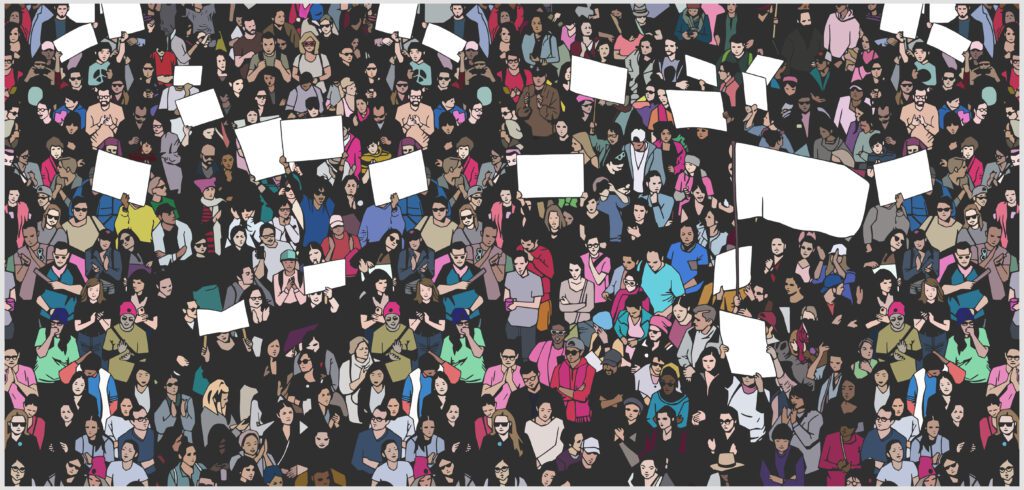
To solve the first issue, we could demand greater preparation, rigour, discipline, and dedication from us, those occupying the formal bodies of the union. But for the second, there are no quick fixes. It is because of the limitations imposed upon the class itself that, to me, it seems unreal to propose a self-managed revolution by itself.
Last week, Ricardo Esteves Ribeiro wrote that SinJor serves only as an “intermediary between the bosses and the workers-journalists”, not least because, “besides some weak and sparse proposals for legislative changes to facilitate the creation of journalistic cooperatives”, it does not call into question “the employer-employee relationship itself”. Given Ricardo’s departure from the union, one can deduce that he considers participation in this structure as legitimising a status quo that he despises.
So he writes: “I do not see that the Sindicato de Jornalistas wants anything more than to slightly improve the old working practices. Well, that’s exactly what Fumaça has been trying to counter from the beginning. What we want is to participate in a revolution of journalism. No hierarchies, no directors, no bosses, directors or administrators. And the two views are incompatible.” Being part of both, and not feeling particularly divided, I have to disagree.
To begin with, because I am not able to ignore the need to mitigate damage. Trade unions’ gains aren’t irrelevant just because they’re insufficient. The collective struggle that prevented a 200-person layoff at Global Media Group was real. The support now being provided to the photojournalists that Medialivre is attempting to fire is also real. The (continuous) struggle to integrate precarious workers in RTP, and, by the way, the company agreement that was being negotiated until recently, are also real.
Every reclassification process where someone gets back years of the salary stolen from them is real. The increase in wages guaranteed by the collective labour agreement of the press is real (even if disgustingly small). And there is a real need to exercise, in an organised way, influence over the legislative revision promised by [the Government parties] PSD and CDS, by participating in the choice of representatives for the Professional Journalist Accreditation Commission, and intervening in the advisory board of the Media Regulatory Authority.
These results cannot be seen as horizons. Indeed, they fall short of any worthy ambition, be it reformist improvement or the refounding of the sector, but I disagree that moderation is such a stain that it justifies disengagement, and, I fear, inaction.
I will just quote a 2023 text by Ricardo Esteves Ribeiro: “The division of the world into a set of simplistic dualities may as well be supportive of its basic understanding. It becomes easier to choose sides if alternatives are limited, if there are lines separating the good from the bad. But Manichaeism was never profitable. Certainly not for the original Manicheans, who have always been persecuted, but neither for an honest reading of the dilemmas of our collective life.
The world is not black and white, nor does it have only good and bad. There is nuance, complex understanding of complex problems. There is history, context. But understanding nuance, complexity, history, and context is hard work. And contemporary Manicheans – of those stemming from the religion I know little about – do not want to go through the trouble.” I don’t even have a particular attachment to institutions, but I allow them nuance.

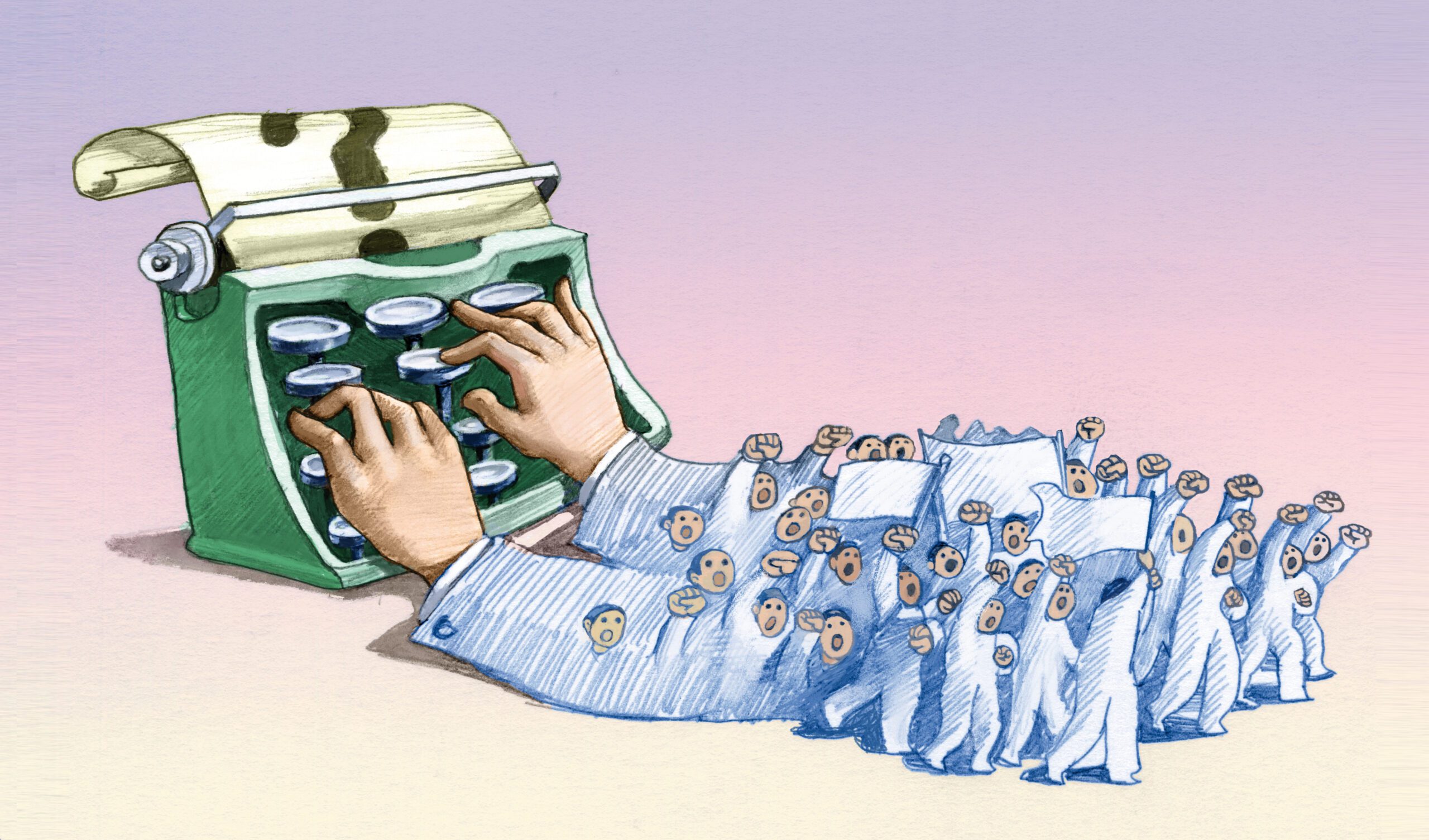
Revolution does not sprout spontaneously
I agree that our basic response to the journalism crisis should be self-management: we need media organisations to be collectively managed through the newsroom councils. But the appropriate course of action doesn’t seem to me to be proclaiming “I do not align”, constituting an alternative newsroom, and hoping that this inspires others to take action. If what’s being proposed is a revolution of journalism, it is not enough to criticise the sector and create alternative spaces (as Ricardo does with effort and generosity, also by sharing knowledge and seeking to attract philanthropic funding).
Even if in Fumaça, and similar projects, a paradise of financial sustainability, editorial strength, and labour dignity is established, it will not be by osmosis that this oasis will change the media. Therefore, the practical result of reducing our intervention by abandoning existing workers’ movements is to say to those who today work under unworthy, more precarious conditions than we do: “Good luck, but that doesn’t concern me.” An “inadmissible conformism and reprehensible lack of solidarity”.
Even if the transition towards autonomous organisation of newsrooms is urgent, we need to make it possible. We face it daily at Fumaça: there is no legislative framework and no paths to funding. I encourage others to try self-management. But it would be irresponsible to say that all media, particularly large newsrooms doing national daily news, could survive this way at this time, when they now lose money. For the purpose of revolutionising journalism as a whole, our most effective sectoral intervention mechanism remains the SinJor.
I see no benefit in abandoning an institution that we can make use of, taking advantage of its memory, the goodwill it maintains and the mobilising force that it can still apply to more than two thousand associates, its institutional relations, and access to newsrooms, in particular those it accompanies in ongoing struggles. It may be weaker than it used to be, but I don’t recognise it as mortally wounded, nor do I believe that it’s time to give up working on it.
If we do not want to push comrades off a cliff, where they will not be able to pay their own salaries, we need concerted work to make creating new newsrooms viable, and force the democratisation of existing ones. In the very least, sectoral legislation needs to be changed, and direct public funding mechanisms need to be established.
It is essential to give binding decision-making power to elected newsroom councils, including appointing managers in hierarchical newsrooms. It is necessary to establish conditions that allow journalists to opt for self-management. If for nothing else, so that journalists are willing to participate.
Currently, I am not sure that there is a will to undertake the collective, horizontal management of journalism. Even less so for the measures proposed by my comrade to achieve it, as an alternative to my reformist lobbying process. If you want to assess the openness of newsrooms to surpass the “legalised pacific means of struggle”, all you need to do is read the coverage that mainstream journalism gives to any recourse to political violence.
You can’t radicalise a struggle by waging it against the workers. Either you mobilise your class, or you’re planning a vanguardist coup. As it stands, that’s what a call to direct action is here. There are not enough workers with an interest in taking newsrooms by force, sabotaging media companies, and deposing editorial boards. To have a sustained radical effect, you need collective organisation and class support, to have journalists be with the means and the ends. And you also can’t leave behind those in worse working conditions. Can’t forget to try to improve the lives of workers.
It should be noted that, in recent history, there are journalists who even oppose to striking. To safeguard the credibility of the publications they work for, only now, after a year and a half of late salaries, did the newsrooms of Trust in News choose to stop. When organising the general strike, there were journalists concerned about harming the boss: a person subcontracted by a TV station as a correspondent asked in a plenary whether the producer employing them would be in breach of contract if they did not deliver the ordered daily pieces. Another, with a regular radio program that would be broadcast on the day of the strike, wanted to join the protest, but to pre-record the episode, so as not to fail the listeners. At the congress, approving the strike motion required the assurance that the shutdown would never take place during the upcoming electoral campaign, harming the public interest.
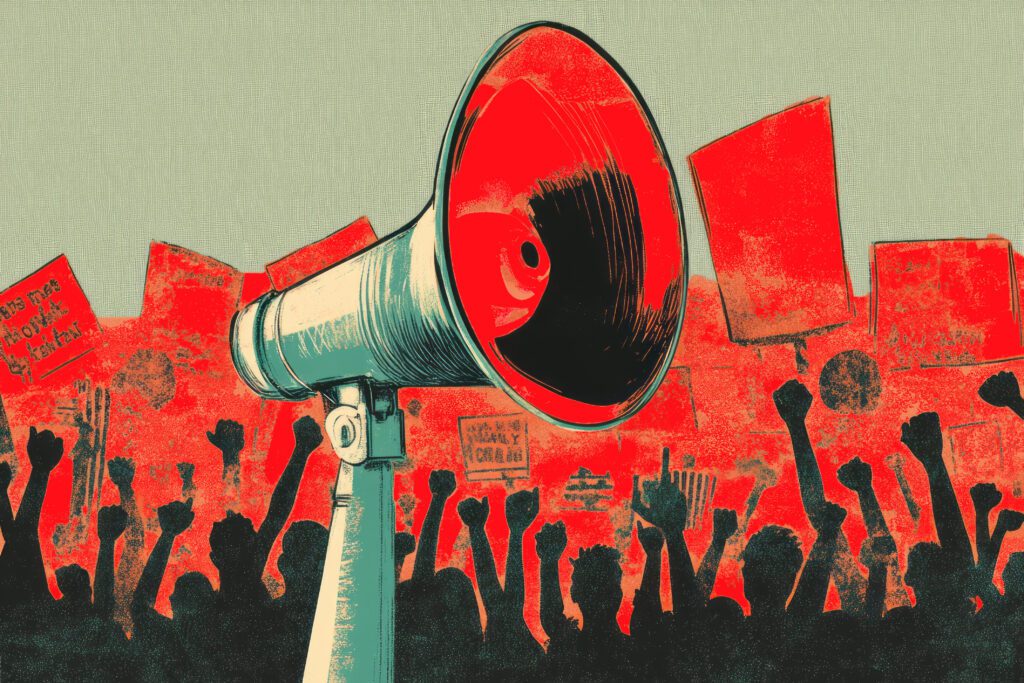
Channel your grievances
By the way, I don’t get Ricardo Esteves Ribeiro’s fatalistic futurology. He’s certain that SinJor “does not and will not defend, in a systemic and foundational way, the concrete overthrow of the figure of the ‘administration’, the ‘board’, the ‘leadership’. They will not be inherently against authority through direct action. They are, in essence, capitalist and reformist.” Moreover, the trade union “will always be an instrument of power”, which “seems to be content to serve as a crutch for the capital”, as he argues.
This idea has several weaknesses. First and foremost, the fact that multiple union presidents argued for self-management and supported newsrooms in transitioning to cooperatives. Alfredo Maia did it publicly, for example, with Comércio do Porto and A Capital. He even tried, in 2010, to get legislation to give newsrooms the ownership of bankrupt publications by default.
The following steering committees supported the same principle: when companies collapse, those who work there attempt to take them over. It emanates from a long tradition of self-regulation and collective resistance of Portuguese journalists, in dictatorship or democracy. But, as Comércio do Porto no longer being published demonstrates, it’s not enough to be for it. And for those who’ve spent their entire career employed by a media company, it isn’t an easy leap of faith to take.
It is fair to note that this position is not “systemic and fundamental.” The central focus of SinJor has not, in fact, been the construction of non-hierarchical journalism. But that does not mean that this goal is unattainable. One would have to be extremely pessimistic to find it impossible to lead an organization made up of our comrades, real people we know, to defend a just cause. To quote Audre Lorde, in 1981: “Anger is loaded with information and energy. For anger among peers brings about change, not destruction, and the discomfort and sense of loss it often causes are not fatal, but a sign of growth.”
I urge you to channel your anger, comrade, to make us grow. Bring your ideas. And if the class doesn’t support them immediately, convince them. Propose an education plan for self-management, volunteer to organise workshops on non-hierarchical decision-making models, plan Summer courses on funding for public service journalism, and think about strategies (legal or not) which allow collective management beyond taking over the newsroom. The union is what you make of it. Give us your energy.
Trade Union greetings,
Nuno Viegas
—
Ricardo Esteves Ribeiro, who wrote the text that Nuno Viegas criticises here, edited the text that you just read.

Nuno VIEGAS
ABOUT THE AUTHOR
Nuno Viegas is a Portuguese podcaster and investigative journalist, researching policing and the penal system, often through FOI legislation. At the worker-managed, membership-backed publication Fumaça, he also co-leads fundraising. A Pulitzer Centre, Alfred-Toepefler-Stiftung and Rosa Luxemburg grantee, his work has been awarded AMI’s Journalism Against Indifference Prize and the National UNESCO Commission’s Human Rights & Integration Prize. In 2024, he was elected to the steering committee of the Portuguese Journalists’ Union.